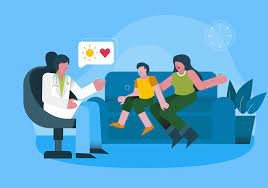


Mental health check-in are essential for maintaining psychological well-being. These practices, which can be as simple as a daily reflection or as structured as therapy sessions, play a crucial role in identifying and managing mental health issues before they escalate. This article explores the importance of mental health check-ins, how to conduct them, and answers some frequently asked questions to help you navigate your mental health journey.
Mental health check-ins are proactive measures to assess and address your emotional and psychological state. Regular check-ins can help you:
1. How often should I do a mental health check-in?
The frequency of mental health check-ins can vary based on individual needs. Daily reflections are a good practice, but if you’re dealing with specific issues or are in therapy, check-ins may be more frequent. Regular weekly or bi-weekly sessions with a mental health professional are also recommended for ongoing support.
2. What should I do if I discover I’m experiencing symptoms of mental health issues?
If you notice symptoms of mental health issues, it’s important to seek help. Start by talking to a mental health professional who can provide a proper diagnosis and treatment plan. Additionally, practicing self-care strategies, such as stress management and healthy lifestyle changes, can complement professional treatment.
3. Are mental health check-ins the same as therapy?
While mental health check-in involve self-assessment and reflection, therapy is a more structured approach conducted by a trained professional. Check-ins can complement therapy, but they do not replace the need for professional mental health support if required.
4. Can mental health check-ins be done with a support group?
Yes, check-ins can be done with a support group. Sharing your experiences with others who understand can provide additional insights and emotional support. Group settings can also offer a sense of community and reduce feelings of isolation.
5. What if I’m uncomfortable with self-reflection?
If self-reflection feels uncomfortable, it’s okay to start slowly. You might begin by using guided journals or prompts to make the process easier. Additionally, consider discussing your discomfort with a mental health professional, who can offer techniques to ease you into the practice.
6. How can I stay motivated to do regular check-ins?
Staying motivated can be challenging, but setting specific goals and creating a routine can help. Integrate check-ins into your daily schedule as a non-negotiable task. Additionally, remind yourself of the benefits and positive outcomes that come from maintaining mental health awareness.
7. Are there specific tools or resources that can help with mental health check-ins?
Several tools and resources can assist with mental health check-ins, including:
8. Can mental health check-ins help with specific mental health conditions like anxiety or depression?
Yes, mental health check-in can be particularly beneficial for managing conditions like anxiety or depression. They help track symptoms, identify triggers, and measure progress. However, they should be part of a comprehensive treatment plan that includes professional guidance.
Mental health check-in are a valuable practice for maintaining and improving your psychological well-being. By incorporating regular self-assessment into your routine, you can better understand your emotional state, identify potential issues early, and foster a healthier mindset. Remember, while self-check-ins are beneficial, they complement rather than replace professional mental health care. Embrace these practices as part of a broader strategy to nurture your mental health and well-being.
Welcome to HealthyFitGlow.com, where we’re dedicated to fueling your glow from the inside out. In today’s fast-paced world, it’s easy




